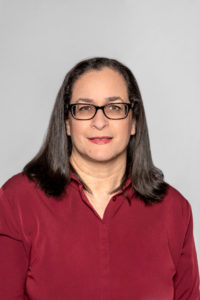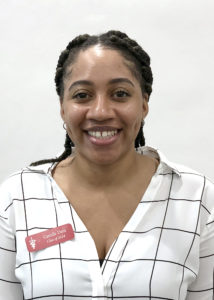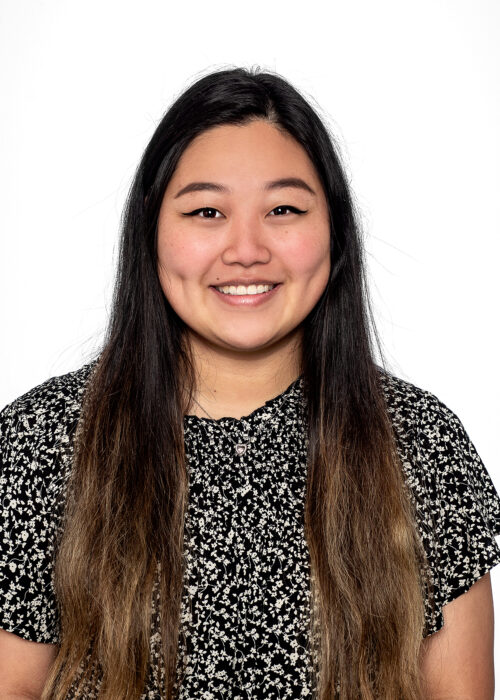Diversity matters. Differences of experience, culture, and lifestyle help to create a community where new ideas flourish and everyone feels safe, respected, and included. The CVM is committed to a welcoming, inclusive environment for all students, faculty, and staff. After all, we are strongest when we reflect the diversity in our larger communities.
To lead our diversity initiatives, in 2020, we formed the CVM Office of Diversity, Equity, and Inclusion led by an Interim Assistant Dean of Diversity, Equity, and Inclusion. Prior to that, in 2017, the Council for Inclusion, Diversity, and Awareness (CIDA) was convened. This College-wide council of faculty, staff, and students is committed to fostering a diverse and inclusive environment for all, as well as develops, monitors and evaluates the progress of the College’s strategic plan for diversity. CIDA’s responsibilities include coordination of activities that support and strengthen our College’s climate of inclusiveness and advising faculty, staff and students regarding issues of diversity. CIDA also serves as the UGA representative to the Diversity Equity and Inclusion working group of the Southeast Veterinary Education Consortium (SEVEC).
Message from the Assistant Dean 2023

The academic year 2022-2023 was filled with many activities and events on campus and at the college that celebrated the diversity of our college and provided many voluntary educational opportunities for faculty, staff and students to learn about different cultures and communities. Many of these activities were coordinated by fellow colleagues and students while I participated as a Faculty Fellow in the Office of Institutional Diversity under the direction of Vice Provost Dr. Michelle Cook. Here are some highlights that happened last year.
- VOICE continued the Anti-Racism 301 course and featured the Hispanic/LatinX community with two sessions with guest speakers, and a panel focusing on being in Vet Med as a member of those communities. They also brought speakers to discuss disabilities and awareness with a veterinary surgeon who lost both of her hands as a teenager, ADA compliance discussions and hosted a documentary on how the ADA was fought for in the 1970s. The club won a National ward for being an Outstanding Chapter.
- The Certificate in Diversity and Inclusion, a voluntary program, had more colleagues in the college complete the certificate with a total of 54 faculty and staff finishing the program over the past 3 years. Remember, you can sign up for this voluntary program via the PEP and look for classes with the CDI prefix.
- The 33 CVM faculty and staff divided into 11 groups collected FY2023 data and activities for our Diversity and Inclusion Excellence Plans to support the UGA Strategic Plan for Diversity and Inclusion. The UGA plan is built on 3 pillars: Student Living and Learning; Workforce; and Outreach and Partnerships with underserved communities. CVM efforts will promote a roadmap that builds a welcoming and inclusive environment in the College.
- CIDA continued to host “Thru the Lens” speaker series with both virtual and in person presentations. Ground Rounds continued the tradition of a presentation centered on Diversity and Inclusion that involved discussions around various scenarios with microaggressions. CVM Today continues to be the modality to inform the College community of various programs and events on campus. Dean Lisa Nolan was a featured speaker for Lead @3 Spring Semester, a speaking series that focuses on women leaders sponsored by the Office of Institutional Diversity.
The college has made great strides in building a welcoming and inclusive environment for our faculty, staff, and students. Resources related to diversity and inclusion are available to all on the Intranet under Diversity and Inclusion. There are many volunteer opportunities available to learn, participate in, and create programs that contribute to enhancing professional development and programs in the College, and we encourage your participation.
DEI Student Representatives
Each of the cohorts in our DVM program has a diversity, equity, and inclusion student representative. DEI student representatives serve as a point of contact for their classmates to express their concerns and/or provide input on the current state of DEI at the College.

Camille Dent | DVM Class of 2024

Hannah Huff | DVM Class of 2025

Yu-Jin Chang | DVM Class of 2026

Irene Nazario | Class of 2027
Affinity Groups
Affinity group membership includes representatives from across the College of Veterinary Medicine, inclusive of class representatives along with students, faculty and staff who are interested in supporting DEI efforts at the CVM.
- Student Association of Veterinary Medical Professionals (SAVMA)
- Veterinarians as One Inclusive Community of Empowerment (VOICE)
- Pride Veterinary Medical Community (Student PVMC)
- National Association of Black Veterinarians (SNABV)
- Association of Asian Veterinary Medical Professionals (AAVMP)
- Latinx Veterinary Medical Association (Latinx VMA)
Non-Discrimination Statement
The University of Georgia College of Veterinary Medicine encourages its members to view, evaluate, and treat all persons in any professional activity or circumstance in which they may be involved, solely as individuals on the basis of their own personal abilities, qualifications, and other relevant characteristics.
The University of Georgia College of Veterinary Medicine confronts and rejects all forms of prejudice and discrimination that have led to misunderstanding, hostility, and injustice. These include, but are not limited to, those based on race, ethnicity, gender, disability, sexual orientation, gender identity, parental status, religious beliefs, military or veteran status, political beliefs, geographic, socioeconomic, and educational background and any other characteristic protected under applicable federal or state law.